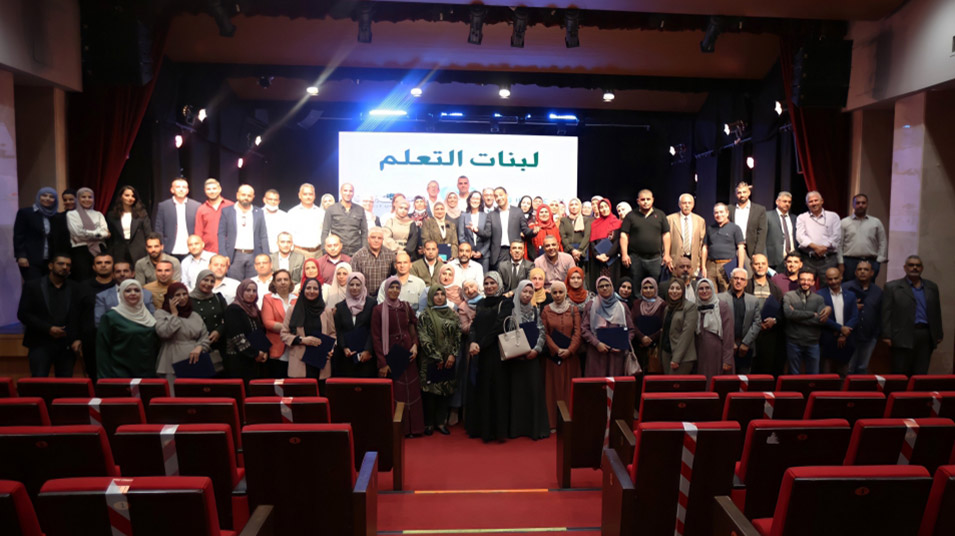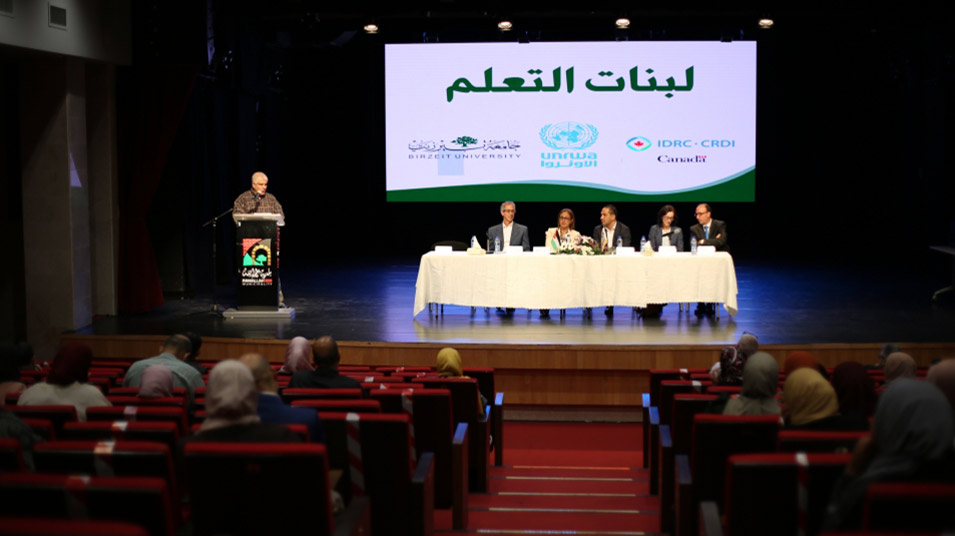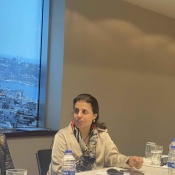UNRWA teachers gain life-skills education in continuing education training program
Staff from Birzeit University’s Center for Continuing Education (CCE) and the United Nations Relief and Works Agency for Palestine Refugees in the Near East (UNRWA) celebrated the completion of a training program on applying experiential learning objects in UNRWA schools across Palestine.
Targeting 100 school teachers from 50 UNRWA schools, the one-year program was implemented in partnership with the International Development Research Centre (IDRC) with the aim of integrating academic knowledge with life-skills and citizenship education through direct interfaces with national curricula.
In her welcoming remarks, Dr. Lourdes Habash, Birzeit University’s vice president for community affairs, emphasized the importance of programs that provide teachers with the skills needed to empower and encourage students to produce knowledge and become active leaders in their communities.
Marwan Tarazi, director of the CCE, discussed the center’s long-standing partnership with UNRWA, which aims to creatively effect change in the Palestinian education system. “Through our partnership with UNRWA, we will be able to apply our experiential learning objects in Palestinian refugee camps, giving students the knowledge and skills required to develop and advance the Palestinian community, ” he added.
Kate O’Rourke, deputy director of UNRWA operations in the West Bank, praised the training program and the larger experiential learning objects project, noting that it provides teachers with the space to be creative and allows them to connect their knowledge with real-life situations and skills. This practical aspect of the program fosters students’ interaction with their teachers and maximizes learning outcomes, she said.
Explaining the main idea behind the experiential learning objects project, Osama Mimi, director of the Unit for Learning Innovation at CCE, noted that it seeks to create an interactive, participatory learning environment where students gain life skills and become active citizens in their communities. The program, additionally, bolsters students’ ability to produce knowledge, he said.
Barbara Shenstone, the regional director of IDRC, remarked through Zoom, “Palestinians might not have gas or petrol to secure their future, but they have themselves. What is better than quality education to have a secure future?”
Mimi concluded the graduation ceremony by presenting the reflections of participating teachers in the program, who explained that it fosters creativity and encourages
students to think outside the box and actively interact with their teachers and peers during classes








